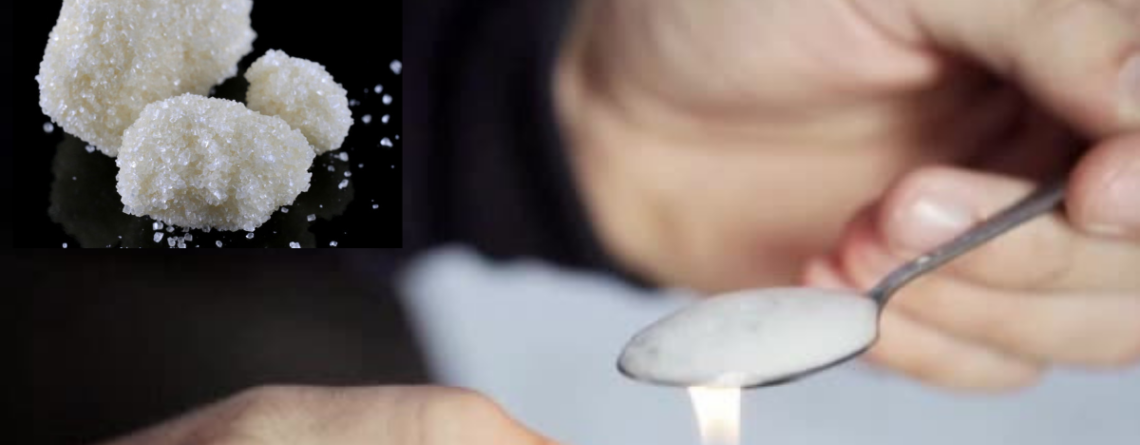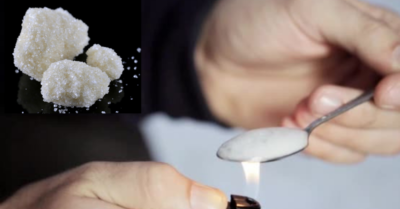Crack Addiction Symptoms, Signs, Treatment Options
Cocaine in and of itself is a powerful and addictive drug. When the powder is mixed with baking soda and water, boiled, cooled, and then cut into rock-shaped pieces, the resulting crack cocaine is even more potent, addictive, and deadly. Even though the high from smoking or snorting crack only lasts 5-15 minutes, it’s instant and incredibly powerful.
Crack cocaine is considered the most dangerous version of cocaine because it has the potential to rewire the brain after just one use. A dose of crack releases dopamines at an unnaturally strong level that cannot be replicated by the body’s normal, healthy state. Since dopamines are associated with pleasure and reward, the brain will need crack again to feel that same level of pleasure or high.
Even though the high is short-lived, the user will take another hit of the drug to feel that euphoria again and again and again. As you might imagine, it will eventually take more of the drug to feel the same effects as the brain will develop a tolerance to the drug. When people continue to use the drug in spite of the negative consequences it has on their lives, it’s safe to say an addiction has developed, and with this drug, it doesn’t take long to get addicted to crack.
Signs of a Crack Addiction
One of the first and most obvious signs that someone has an addiction to crack cocaine is that they are constantly looking for the drug. For many, the first high was so powerful, they’re constantly chasing that feeling again to no avail. However, because of that chase, they end up addicted to crack and sacrifice just about everything in their lives because of it.
Additional symptoms of crack addiction include:
- Abnormal bursts of energy and stimulation: erratic behavior, not being able to stay still, talking very fast, acting very agitated.
- Odd eating habits: eating very quickly or not eating anything at all.
- Fatigue: after the dose wears off, sleeping for days, or falling asleep wherever.
- Irregular sleep habits: say goodbye to regular attendance at school, work, and other obligations.
- Irritable and argumentative behavior: mood swings, conversations are erratic, difficult to follow.
- Bad breath, nose bleeds, dry mouth.
Perhaps the most damaging symptoms of a crack cocaine addiction are those imposed on your family, personal, and financial situations. A majority of crack addicts lose just about everything because of their addiction. You’ll hear countless stories of those who have lost their families, their homes, their savings, and their personal relationships. Those in recovery from crack addiction often spend a great amount of time healing themselves physically, mentally, and socially.
Signs of Crack Cocaine Abuse
Crack cocaine has several telltale signs of use. Someone using crack will tend to portray excessive and perhaps very uncharacteristic high bursts of energy and stimulation, often going far beyond any reasonable kind of excitement. The manic activity of a crack abuser may include things like talking very rapidly, consuming food at an inhuman rate (or perhaps not even needing any food at all), or exhibit signs of being nervously agitated. When the crack dose wears off, abusers often show signs of serious fatigue and will sometimes fall asleep wherever they are and remain asleep for days at a time.
The drastic swings between unstoppable energy and high exhaustion have an obvious impact on one’s day-to-day behaviors. Crack cocaine impedes on regular sleep habits, making it nearly impossible for an abuser to get a decent nights rest. This often leads to irregular attendance at school, work, and other obligations. The superhuman stimulation and unfathomable fatigue induced by crack also cause violent and unpredictable mood swings that can cause abusers to be very argumentative and at times violent and even dangerous to those around them, especially toward those people who try and stop the drug abuse. Those who are off crack for a while can stir up severe depression and even suicidal thoughts inside them. Abusing crack for a prolonged period of time can often lead to paranoia and hallucinations and lead to dual diagnosis disorders.
The incessant trembling may convince some abusers that they would be able to control the jitters if they had more crack, or just not care about them at all, which then compels them to look for and use more crack.
Crack is most commonly smoked, however, it can be snorted too. Nosebleeds are often a very common sign of cocaine abuse because of how the drug tears the nasal lining and passages when it is snorted. This is often why a person abusing cocaine often has a constantly runny nose. Long-term use may permanently damage the nasal lining, robbing a user of the ability to smell anything at all.
Just like snorting cocaine, those who are snorting crack can also tear the mucous linings of the throat, making swallowing or speaking very difficult. Some crack users can be identified by their hoarse voices and chronic sore throat.
Support and Treatment for Crack Addiction Recovery
Crack’s effects on the brain are quick acting and powerful. As such, the physical effects of withdrawal are so intense (may include fever, diarrhea, depression, thoughts of suicide) that they’re best managed by a medical professional who can monitor the body during this process (the individual’s vital signs, administer necessary medications, reduce risk of relapsing).
Once the physical addiction to crack is addressed, the individual needs to address the psychological addiction to the drug. Various types of therapy can help with this process, especially motivational interviewing and cognitive behavioral therapy.
It’s critical for the individual in recovery along with his/her support system to address “what’s next?” including relapse triggers, outside influences, the importance of peer support, and a plan of action for the future.
It is so important for detoxification and therapy to be carried out in a professional, safe setting like a hospital or residential treatment facility. Doing so at home or by oneself is not only dangerous, it’s unlikely that recovery will actually happen.
Crack cocaine still remains a very serious public health threat across the United States. The causes are many and difficult to pin to just one variable. However, addiction treatment exists, and it works. Many thousands of people have had their lives saved due to the fact that they got help and their friends and families supported them throughout their detox, rehab, and recovery, so they could put the low vibration lifestyle and mindset of crack addiction behind them, and move forward living a sober life free from addiction to crack.
Recovery from crack addiction is not only possible, but it’s also imperative. If left untreated, a crack addiction can lead to permanent psychological damage and/or death. Help is available right now. Contact Beach House and speak with an addiction expert confidentially 24/7 and get the answers and help you need for you or a loved to get free from crack addiction and/or any other alcohol or substance abuse addiction treatment too.


